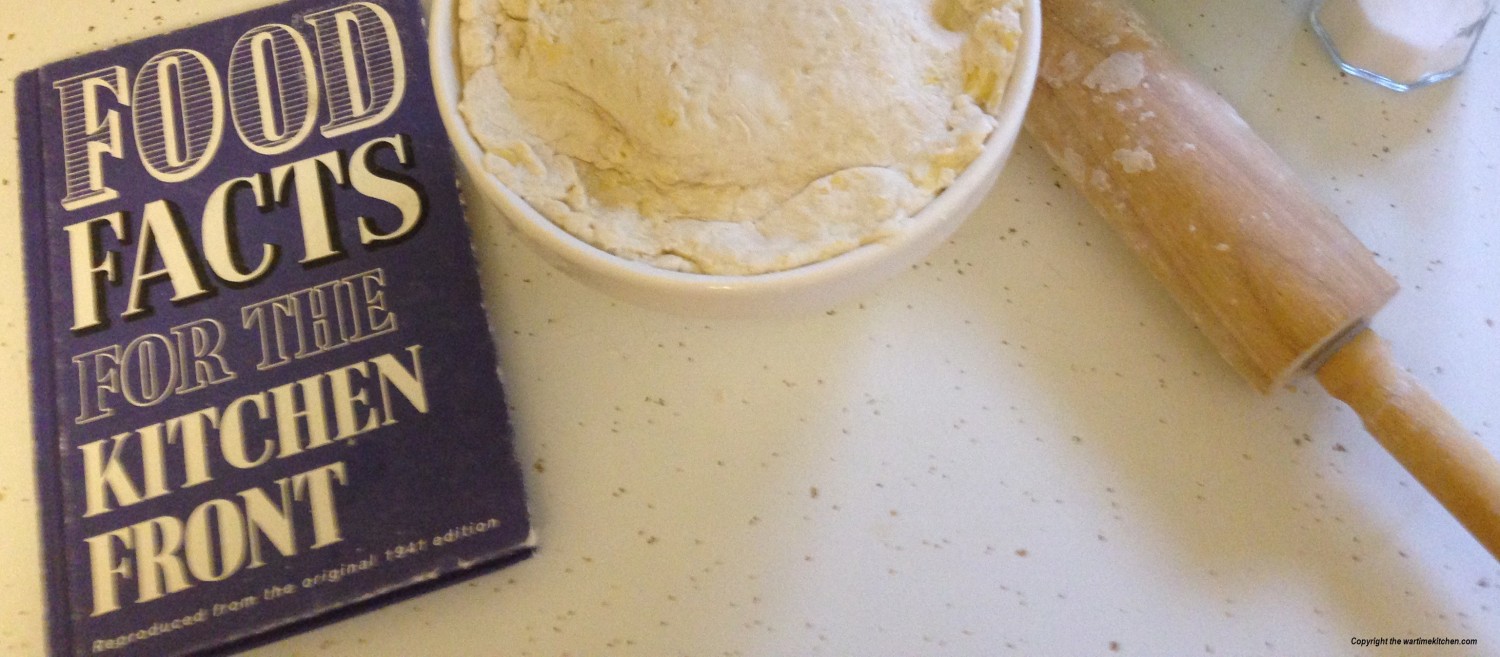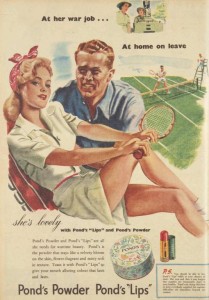It was a lot of work to stay beautiful in wartime. Food, fuel, and clothing weren’t the only things rationed. Beauty was, too (actually the tools to keep beautiful were rationed). Hair care, face, and beauty products contained many ingredients that were rationed, so it took some creativity for the wartime woman to look for alternatives to keep up a beauty regimen.
Hair
Keeping hair clean was a struggle. Working in factories, rationed shampoo, and limited water usage made it hard work to keep hair clean and beautiful. One method that women in wartime Britain used to wash hair was to mix a tablespoon of baking powder with a small cup of warm water or to saturate hair in vegetable oil (when available) and wrap in a towel until ready to wash. Dry hair was made shiny and manageable by rinsing in beer. Lemon juice was used (when one could find lemons due to rationing) on hair which helped to remove residue from hair. Not only was a homemade regimen practical, but using every day items that were readily available showed women were supporting the war effort. Magazines targeted women by using slogans such as “Put Your Best Face Forward.” An active beauty regimen also helped at a time when black outs required finding something to occupy time spent in the dark! Setting hair at night took some creativity. One of the most popular methods was to curl hair by “ragging.” Curls were achieved by tearing old material into strips, taking a small section of hair and twist around the rag until the twist reached the scalp, and then tie the ends of the rag together, and go to bed. One would wake up to curly hair!
Cosmetics
Heavy brows were the thing for women in wartime. Cosmetic counters today are adorned with countless numbers of beauty products offering every eye preparation imaginable, with the most daring item in the WW2 woman’s make-up bag for eyes was charcoal. Eyebrows were often completely shaved off; then a charcoal pencil being used to draw on to create a full-brow affect.
Olive oil or petroleum jelly was applied on top to make the brows shine. During the daytime, women would use the petroleum jelly on their eyelids to act as an eye shadow. This brightened up the eyes and was easy for women working in the factories.
Mascara was not widely used during wartime. Women would make it from petroleum jelly and coal dust pressed together to then be applied to the lashes with a fine brush.
Face powder was used and was essential as it doubled up as a tool to create a matte base if going out after working in the factory. Beetroot was used as a lipstick and a rouge.
Lips
As previously mentioned, lipstick was used and the war-time colour was, without any doubt, red. Using beetroot and cherry juice achieved this effect. The favourite color was red, and the patriotic shade enabled women to show their support for the war effort and it made them feel more confident (it also went down well with the soldiers!)
Churchill engendered a notion of fighting the enemy by keeping up morale with beauty and looking one’s best. Magazines and newspapers had an endless flow of hints and tips for scrimping and making powders and lipsticks last longer. Beauty was propagated as a way of lifting the wearer from the awful reality of war, not just for herself, but for her soldier too.
Shhh…other beauty tips
There were all sorts of other beauty secrets women of the war possessed. From removing vegetable stains on their hands with lemon juice, to oiling themselves up to tan!
American forces introduced British home front women to nylons which enabled them to create stockings and suspenders. As nylons became increasingly necessary for the war effort, women were forced to resort to other alternatives. In order to get the much sought-after sophisticated stocking look, women would paint their legs with gravy browning and draw a line down the backs of their legs with charcoal to create the effect of the seams.
Another method similar to this was by taking four or five teabags, soaking them in warm water and then applying this mixture to legs to give the effect of wearing stockings.
Despite living on rations, some women put beauty before their appetite and used a mixture of rationed sugar and a little warm water or lemon juice to act as a skin exfoliator.
Working all day in a factory was never good for their hands so women would take some petroleum jelly with them to work to apply before going home. This kept their hands soft and supple.
What natural products do you use to stay beautiful during wartime?



